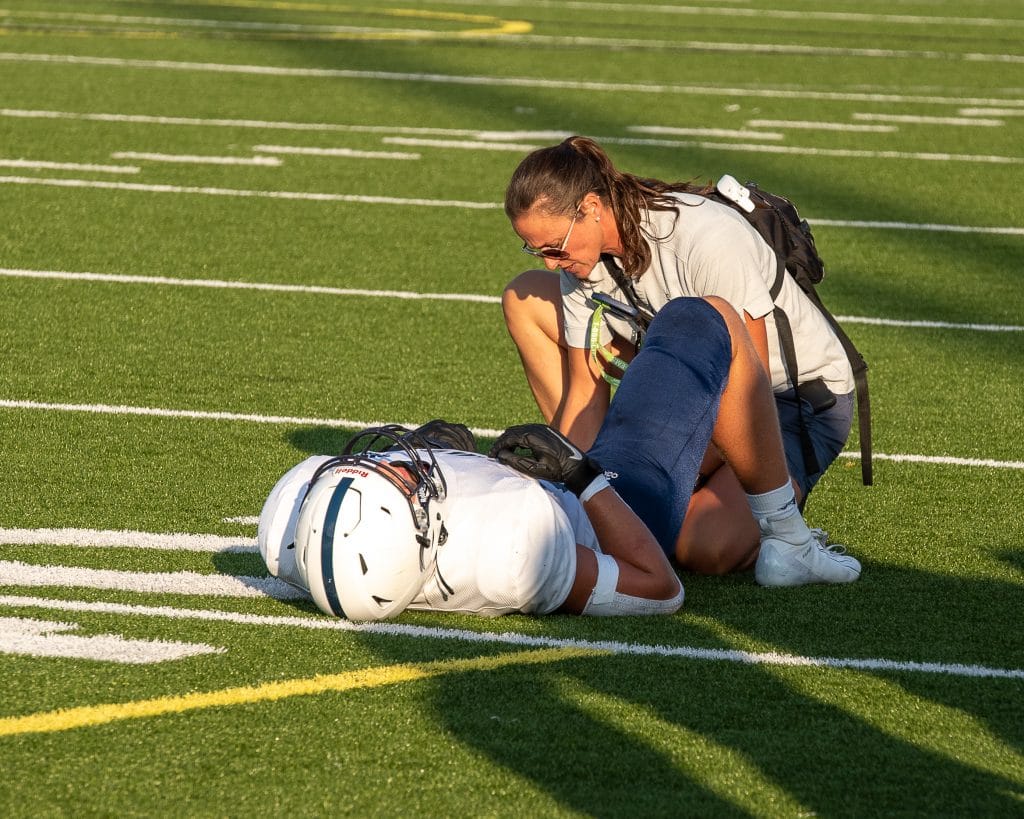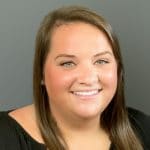So you want to be an athletic trainer?
 So, You Want to Be an Athletic Trainer?
So, You Want to Be an Athletic Trainer?
As a semi-recent graduate (2016) of Central Michigan University’s (CMU) Athletic Training program I would like to shed some light on my experience, what changes are being made to many of the programs across the country, and what the requirements are once you are a Certified Athletic Trainer.
OBTAIN A BACHELOR’S DEGREE
Beginning my journey to becoming an Athletic Trainer started by finding a school that met all of the requirements and would give me the best chance at passing my State Boards. Being a CAATE accredited school with an almost perfect pass rate on the state exam gave me the confidence that I could do it too.
CMU breaks their Bachelor of Science in Athletic Training program into two phases, a pre-profession, and a professional phase. The pre-professional phase is typically three semesters, you are required to take 10 courses before you can apply. Once you begin your application process and paperwork you are required to have a minimum of 120 practical experience hours, obtain two staff evaluations, participate in a selection interview, and pass a written exam and skills test each with a point value attached. You must obtain at least 318.5 points to even be considered for selection. A maximum of 16 students are selected based on the point values each semester.
The Professional phase consists of 4 semesters and has a requirement of 16 classes while maintaining an overall 2.8 GPA and 3.1 GPA in your Athletic Training specific courses as well as adhering to the Board of Certification standards of practice. Your final task before graduating with a Bachelor of Science in Athletic Training is to complete a 12-week internship of your choosing. This may seem like a lot of work, but the support and guidance I received from my clinical instructors and program director made for a pretty smooth four years.
OBTAIN A MASTER’S DEGREE
As of Fall 2020, CMU now offers a Master of Science in Athletic Training. According to the website, students are required to complete an undergraduate program before they can begin the master’s program but it is not necessary to have an undergraduate degree in athletic training. Applicants must complete 60 clinical observation hours under an Athletic Trainer, maintain a GPA of 3.0 or higher, and have two recommendation letters written on their behalf (one from the Athletic Trainer they observed the other from one of their professors). If you are accepted as a candidate to the master’s program you will take part in an admission interview and begin filling out a CMU graduate program application and other paperwork. Once accepted into the program, the student will complete two years of year-round course work and then be eligible to sit for their State Boards.
PASS THE STATE BOARDS
Once you have completed a bachelor’s or now master’s degree in Athletic Training. You may apply to sit for your State Boards through the Board of Certification (BOC).
STAY UP-TO-DATE ON REQUIREMENTS
Once you pass your State Boards there are a few requirements that must be maintained and renewed in order to comply with State laws and BOC standards.
- Maintain an emergency cardiac care certification throughout the reporting period (typically renewed every two years)
- Earn 50 continuing education (CE) course credits, 10 of which are evidence-based practice courses. There are various ways of obtaining CE’s such as video lectures, in-class courses, conventions, and at-home studies. I personally enjoy attending the Great Lakes Athletic Training Association Convention held in March each year. It is an awesome way to connect with other Athletic Trainers and earn multiple CE’s.
- 49 states require you to apply for a state license.
- As a licensed Athletic Trainer in the state of Michigan, you are required to complete a human trafficking CE as a one-time class, and two pain management courses every two years along with renewing your license.
*A fee is associated with renewing your license as well as a yearly BOC maintenance fee.
This may all seem like a lot, but I want to encourage you that is all worth it! Through school, I had a lot of support from family and friends as well as CMU faculty. The program was very structured and easy to follow. Expectations were high but attainable. My advice would be to find a mentor and build relationships. Get to know others in your profession because you never know what will come out of it, a job, experience, a reference, a friend. Hopefully, this connection will give you extra experience, advice and help build confidence. I would recommend anyone who is considering becoming an Athletic Trainer shadow one first. Our hours can be hard and while there’s some exciting sideline coverage, the job also comes with a lot of paperwork, set up, clean up, and of course sitting in the rain/snow at times! But, the interactions and relationships that I have with my co-workers and students trump the not-so-glamorous parts of my job. I feel blessed to have the ability to help shape and mentor the students that I work with.
